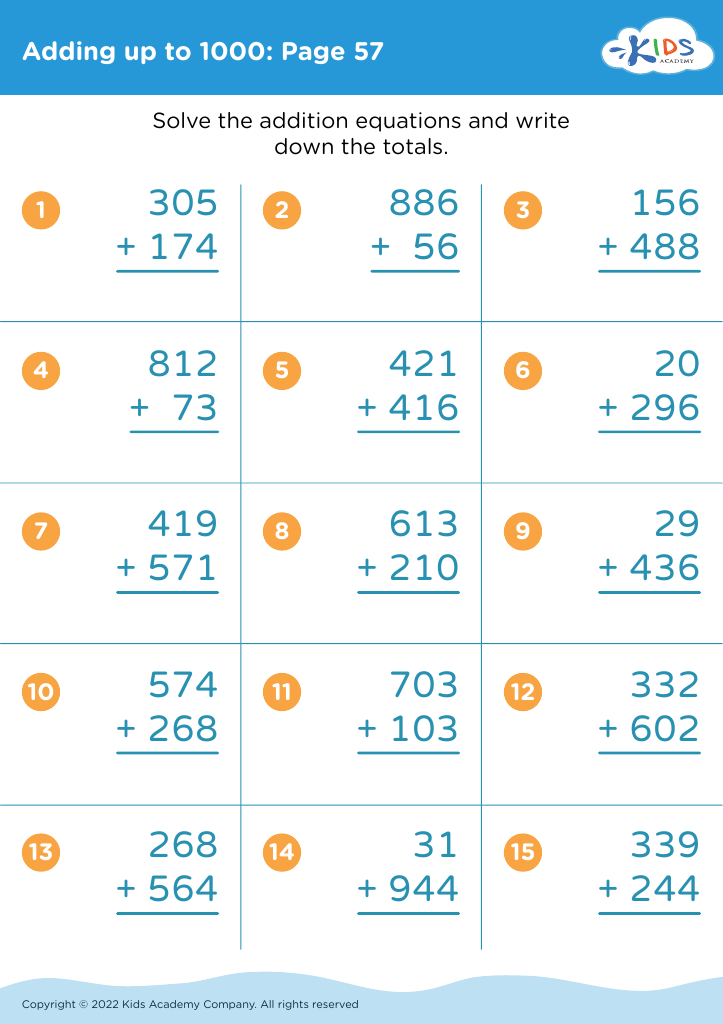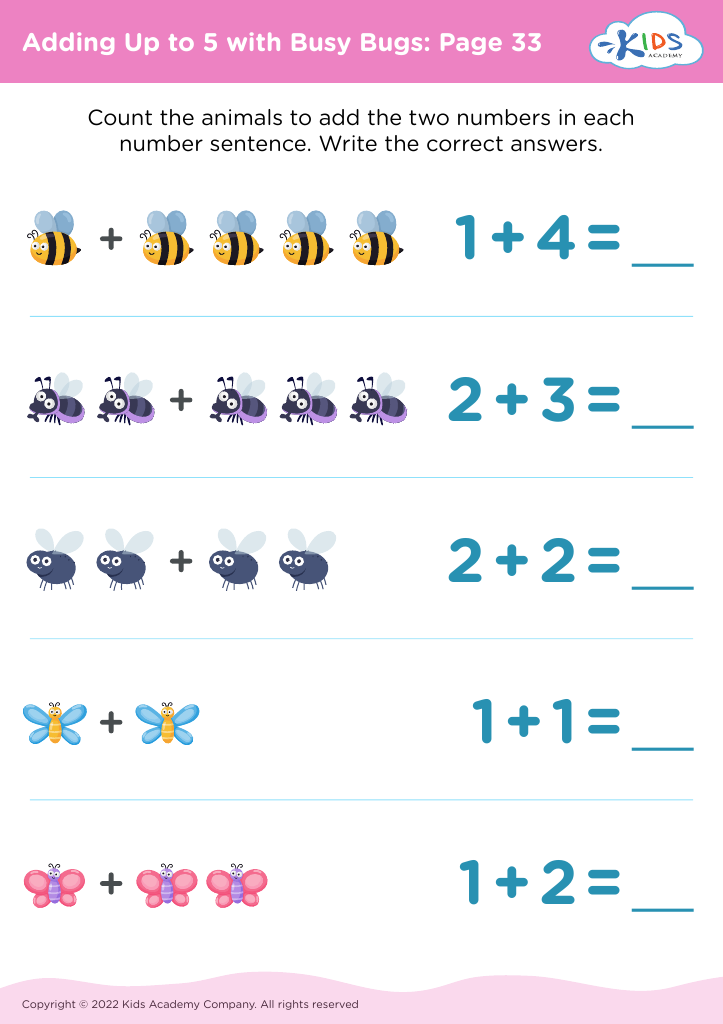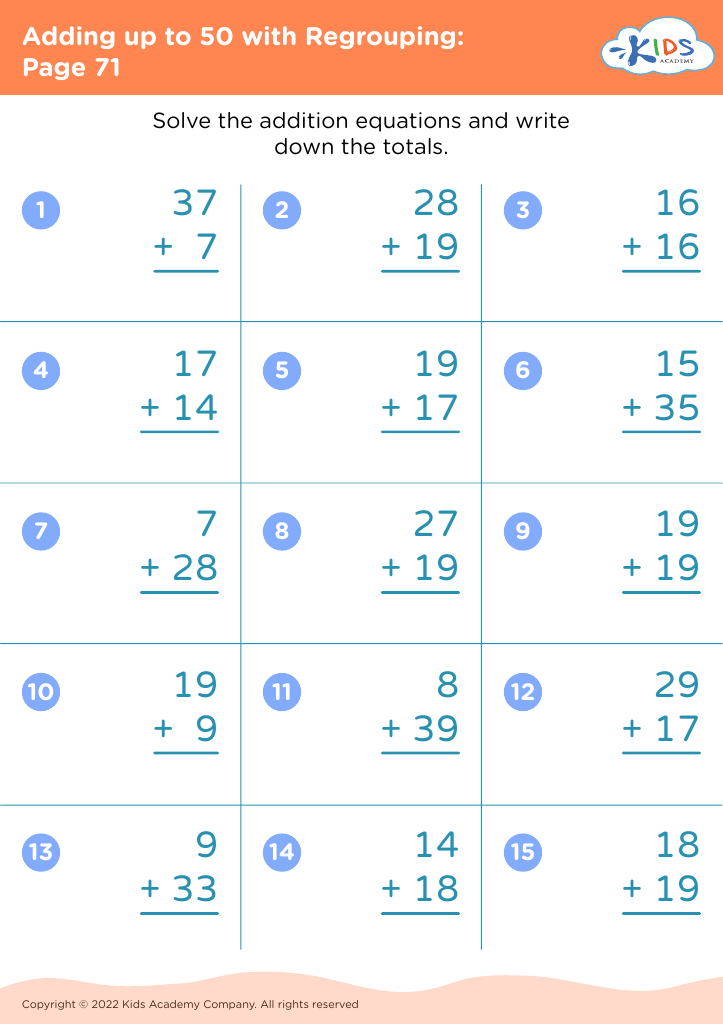Motor skills development Addition Worksheets for Ages 3-8
5 filtered results
-
From - To
Explore our engaging Motor Skills Development Addition Worksheets designed for children aged 3-8. These worksheets seamlessly combine fundamental addition practice with essential fine and gross motor skills enhancement. Integrating educational fun, each activity encourages children to grasp mathematical concepts while refining their hand-eye coordination, dexterity, and manipulation abilities. Ideal for homeschooling or classroom settings, these worksheets provide colorful visuals and interactive tasks, motivating young learners to dive into the world of math. Perfect for fostering both cognitive and physical development, our resources are tailored to equip kids with the skills they need to succeed in their early educational journey. Start exploring today!
Motor skills development is a fundamental aspect of growth for children aged 3 to 8, encompassing both fine and gross motor skills. Parents and teachers should prioritize this development because it lays the groundwork for a child's overall learning and physical capabilities. Fine motor skills, which include activities like drawing, gripping scissors, and buttoning clothing, are essential for tasks that children encounter in everyday life and school. Proficiency in these skills fosters independence and confidence.
Gross motor skills, including running, jumping, and balancing, are crucial for physical health and promote social interactions through play. Engaging in physical activities helps children develop coordination, strength, and spatial awareness, all of which are critical as they approach more complex physical challenges.
Moreover, well-developed motor skills can lead to improved focus and dexterity in early academic settings, particularly in writing and manipulating classroom tools. These skills also connect to cognitive development; coordinated children often demonstrate better problem-solving abilities and can regulate their emotions more effectively during activities.
By fostering motor skills development, parents and teachers empower children with the tools needed for academic success, emotional regulation, and lifelong healthy habits, ultimately enriching their overall quality of life.

























